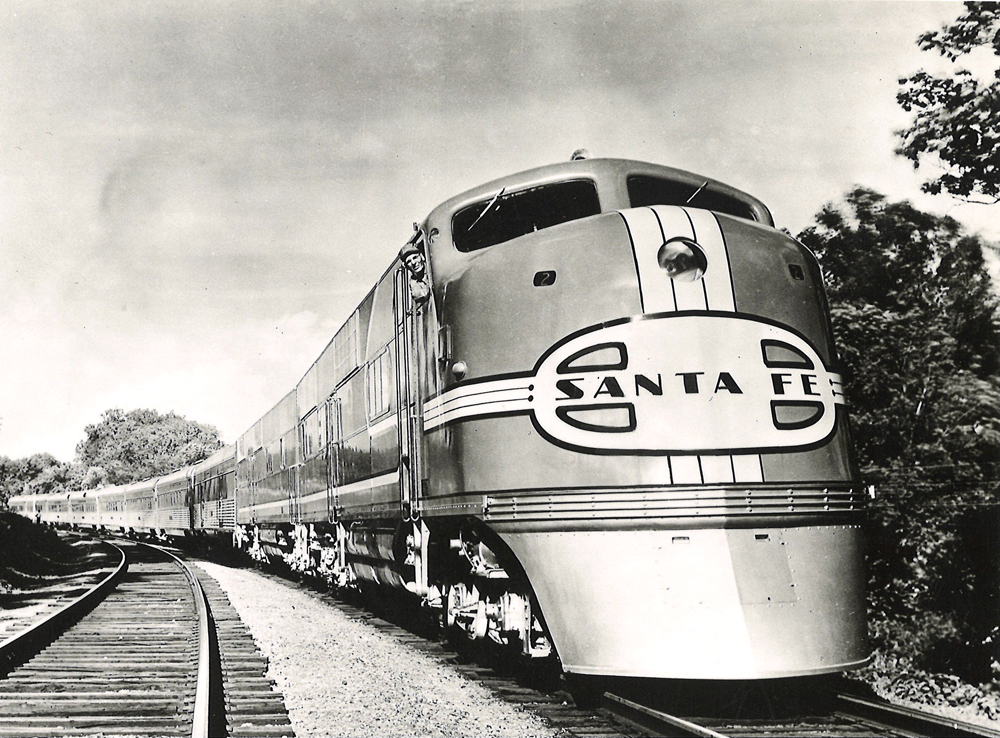
The Budd Co. and Chicago, Burlington & Quincy went hand in hand in building the streamlined Zephyr fleet, though the Midwestern railroad wasn’t the only customer to the car manufacturer. By 1941, the company produced nearly 500 stainless-steel passenger cars to more than a dozen railroads. The 1939 Silver Meteor and 1941 Empire State Express […]
Read More…
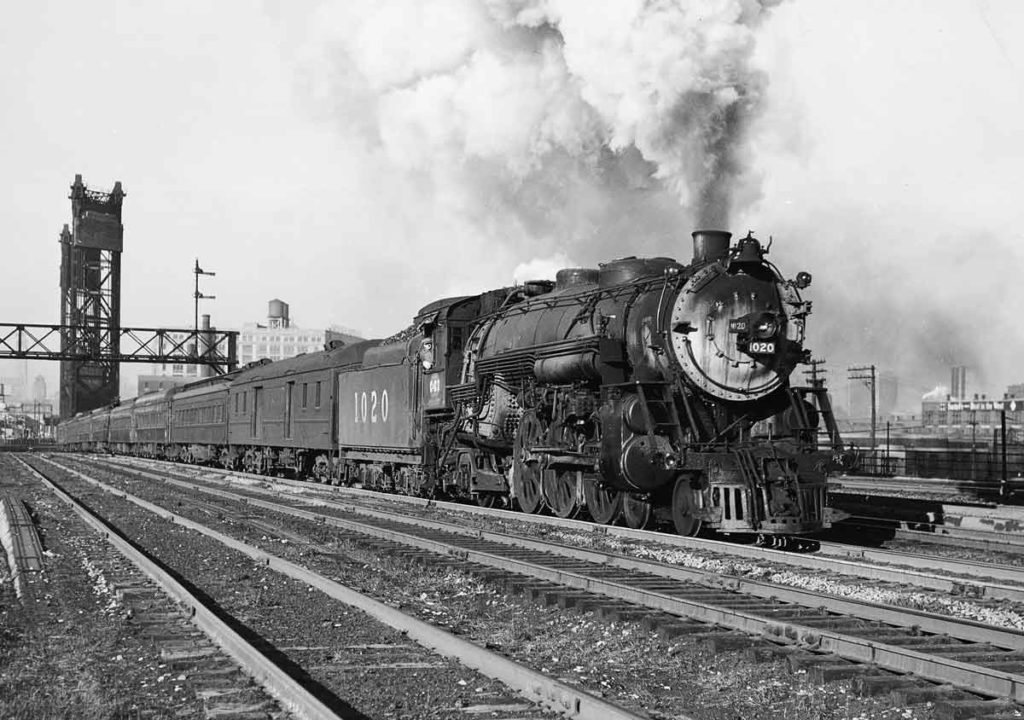
Chicago & Eastern Illinois passenger trains: All through June 2024, Classic Trains editors are celebrating the history and heritage of “The Chicago Line.” Please enjoy this photo gallery of Chicago & Eastern Illinois passenger trains, originally published online in 2015. […]
Read More…
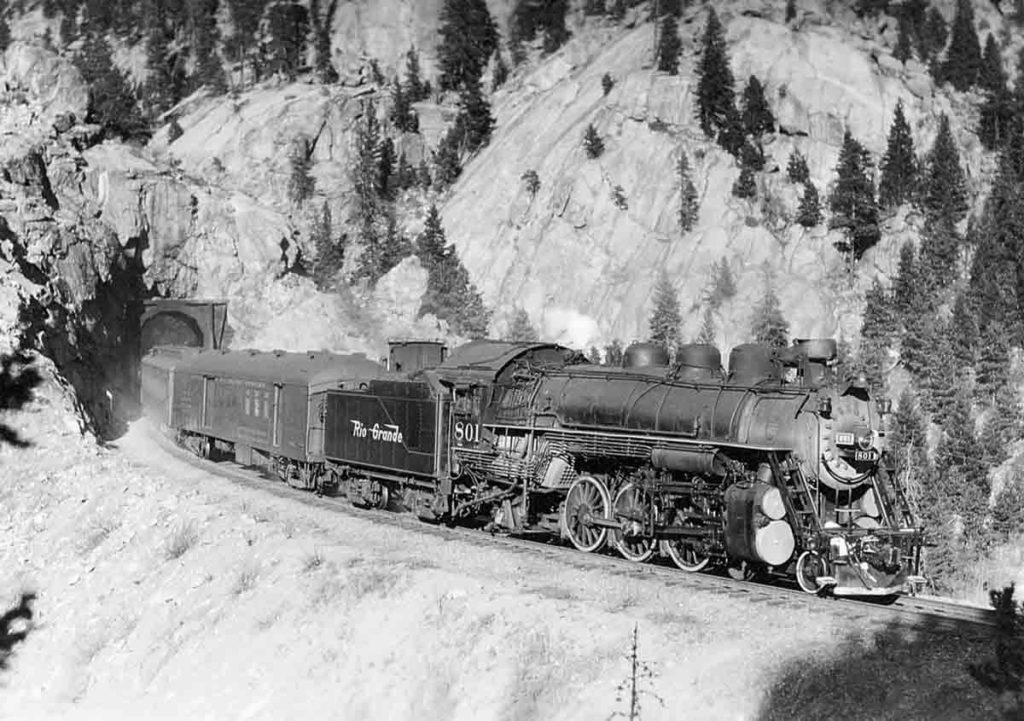
Pacific 801 leads Rio Grande train 10, the local from Craig, Colo., to Denver, out of Tunnel 29 east of Pinecliff on Dec. 31, 1950. Otto Perry photo […]
Read More…
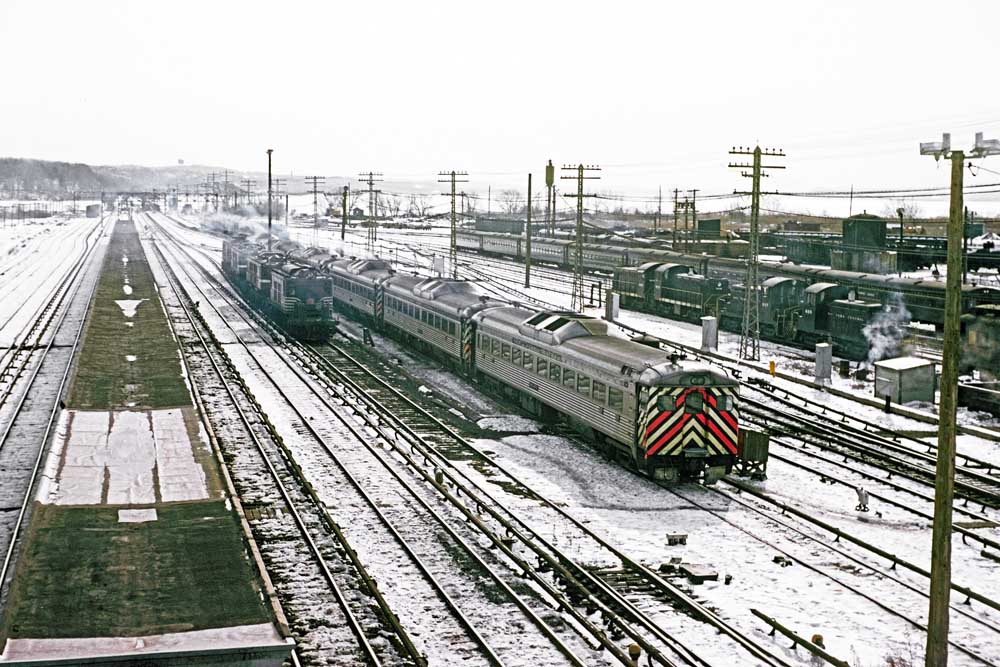
Like many other railfans back in the mid-1960s, I was shooting using black & white negative film essentially on an exclusive basis. Reasons for this included budget (color slide film and processing were more expensive than monochrome), camera quality issues (it turned out that my Argus C-3 could do a reasonably good job with […]
Read More…
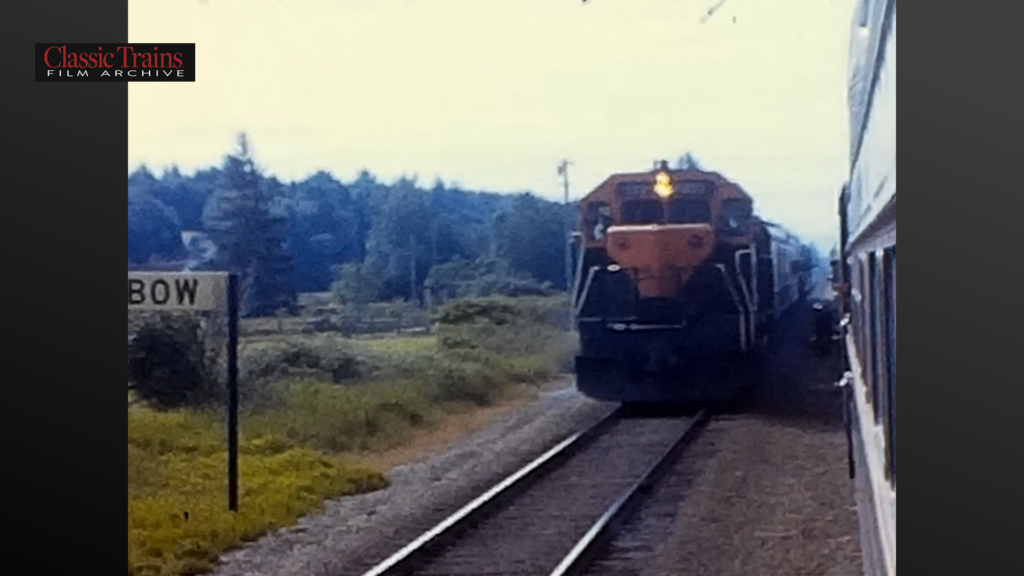
Classic Trains Film Archive | Pacific Northwest and California, J. David Ingles Reel 103 – Through the lens of J. David Ingles, you’ll see the Canadian Pacific, Great Northern, Southern Pacific, Union Pacific; and other roads as he ventured into the Pacific Northwest and California too. Dave rides along Puget Sound with his sights set […]
Read More…
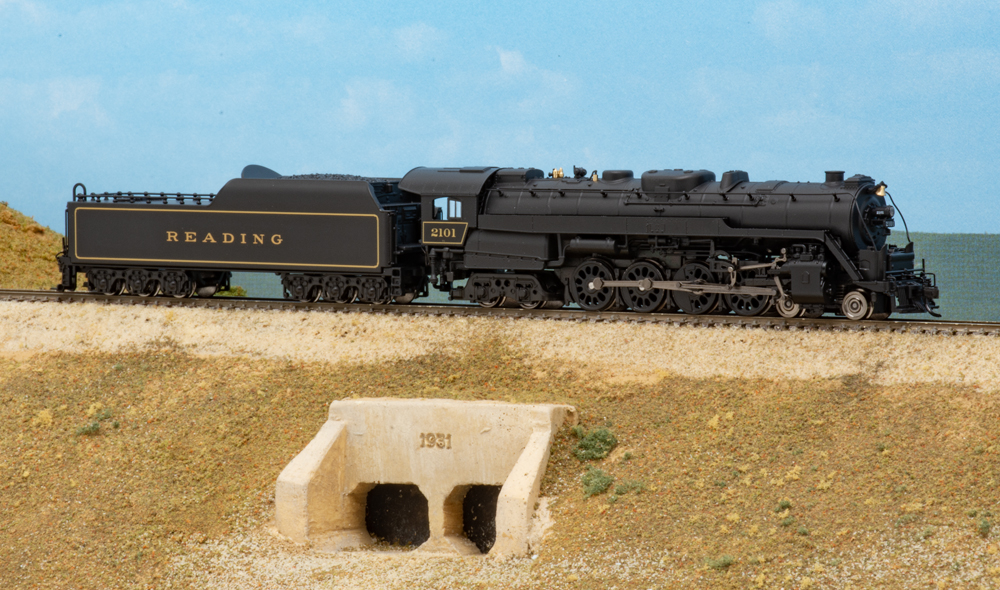
An unusual steam locomotive, born of wartime necessity, has joined Broadway Limited Imports’ N scale lineup. The Reading Co. class T-1 4-8-4 Northern, converted from 2-8-0 Consolidation locomotives near the end of World War II, mostly handled fast freight, but also pulled passenger and coal trains. In 1945, wartime restrictions kept Reading from buying new […]
Read More…
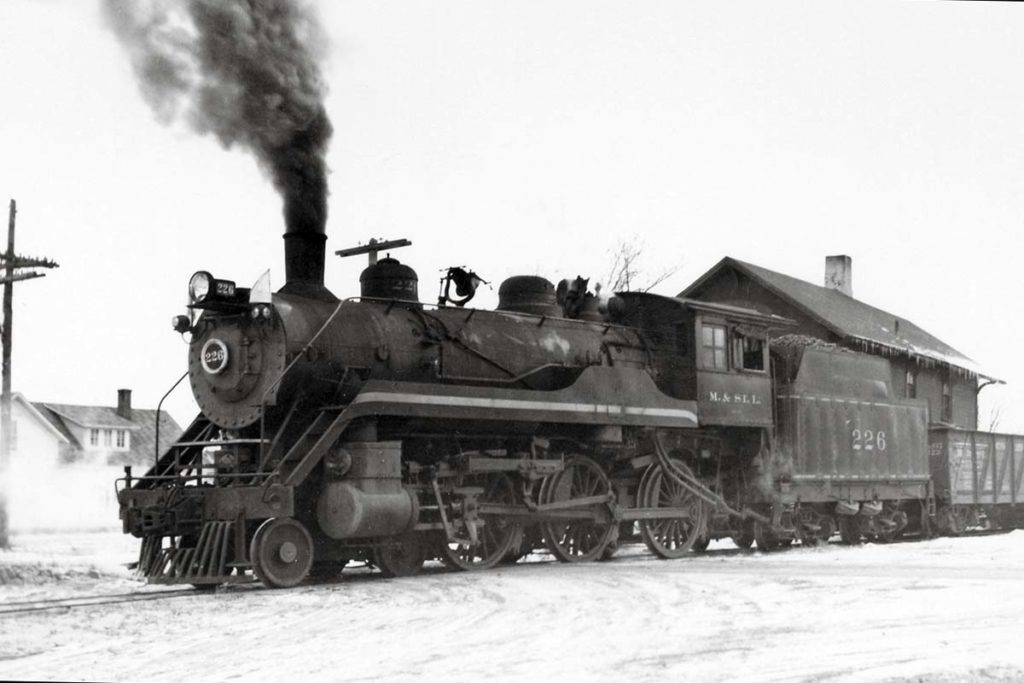
Minneapolis & St. Louis G6-24 class 4-6-0 No. 226, built by Baldwin in 1909, backs a train into Story City, Iowa, in February 1947. The town, at the end of a branch from Minerva Jct., near Marshalltown, also saw service from the Chicago & North Western. William F. Armstrong photo […]
Read More…
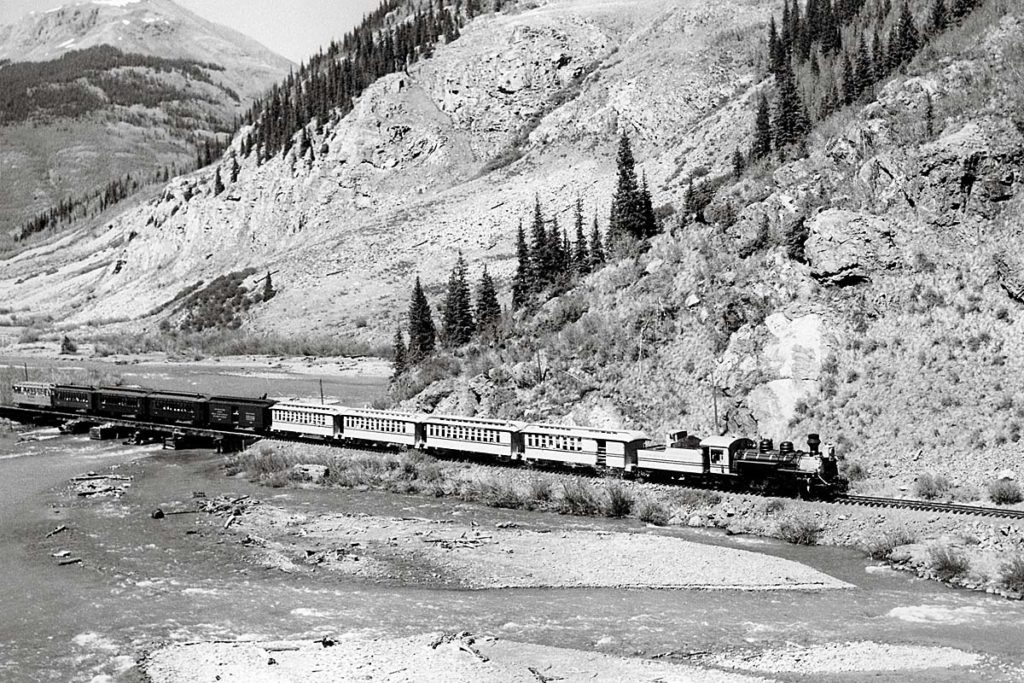
On June 18, 1950, the Denver & Rio Grande Western’s Silverton enters Animas Canyon near its namesake Colorado town. In 1981 the route became the Durango & Silverton Narrow Gauge Railroad. R.W. Richardson photo […]
Read More…
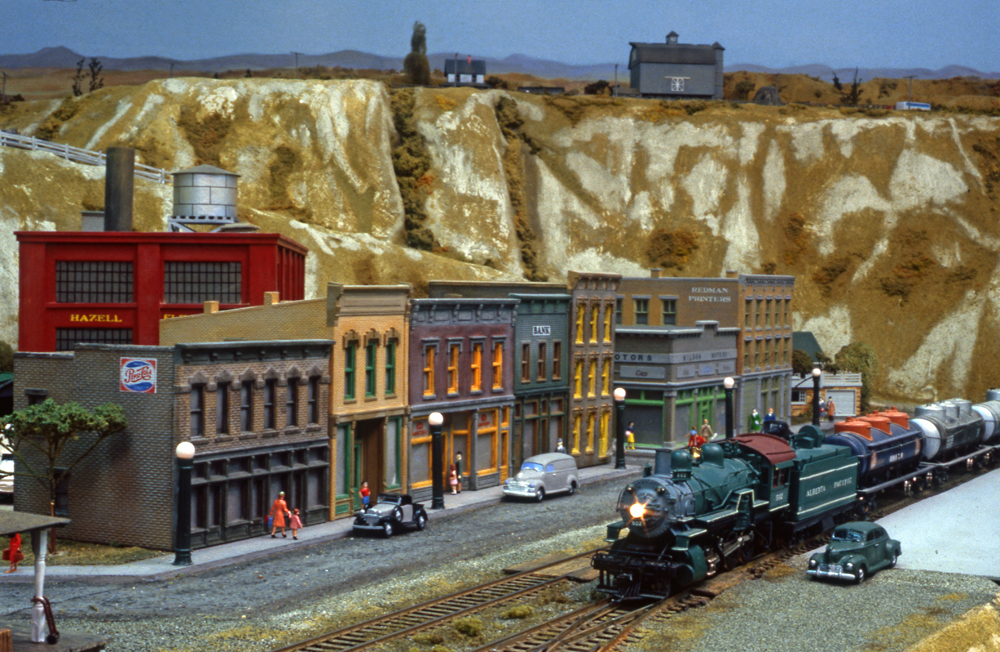
As part of our 90th anniversary celebration, we’re featuring never-before-published articles from our archives on Trains.com. This story is from 1994. Products mentioned in the article may no longer be available. I’ve had an active interest in model railroading for more than 45 years. My ultimate goal was to build a layout of my own […]
Read More…
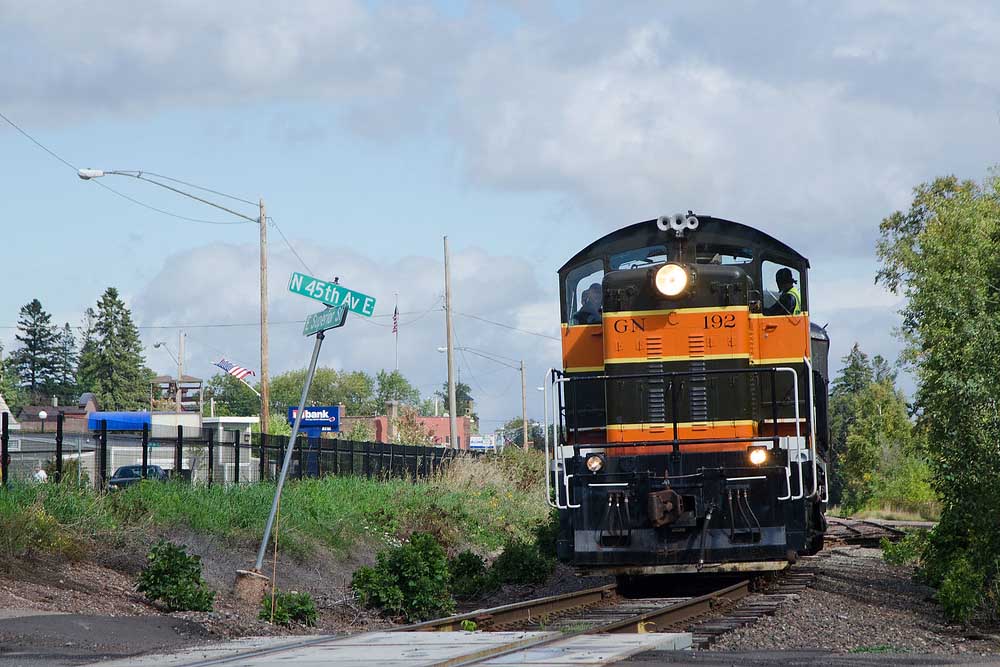
Although some units proved long-lived, the EMD NW5 sold just 13 copies. Although the pre-World War II EMD NW3 was not a stellar seller, after cessation of hostilities in 1945, the builder was keen on revisiting the idea in order to mine the light switcher market dominated by the Alco RS1 and Baldwin […]
Read More…
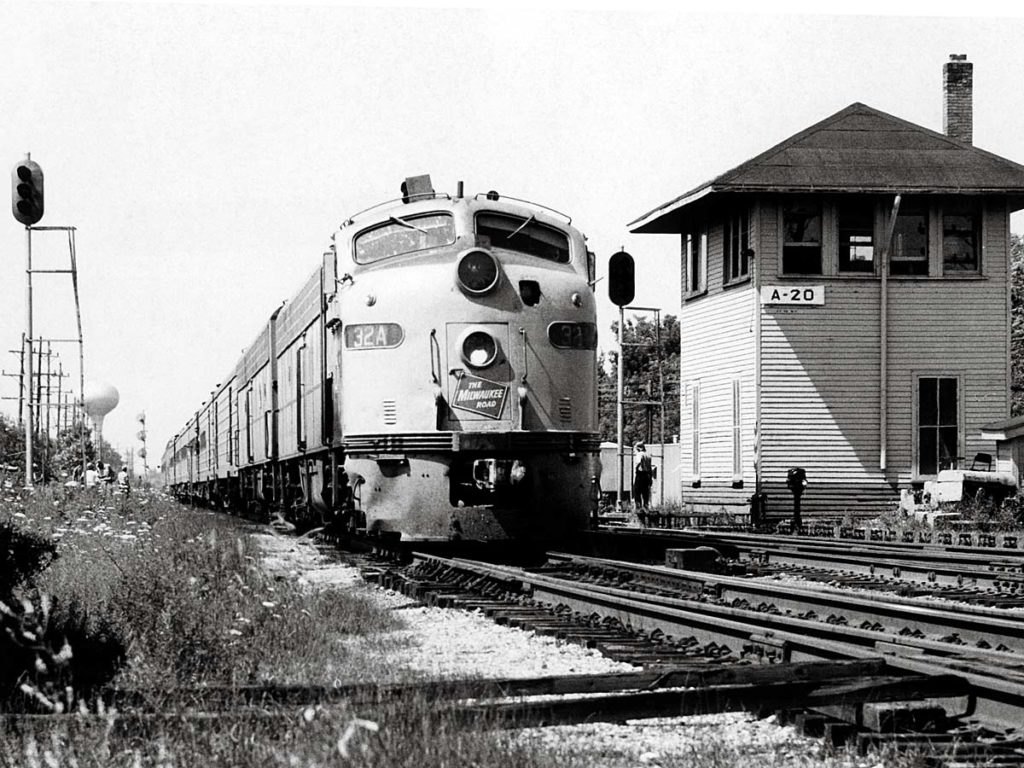
Milwaukee train No. 6, the Morning Hiawatha, passes Tower A20 near Northbrook, Ill., on July 29, 1969. Ahead lies Chicago Union Station. Jim Scribbins photo […]
Read More…
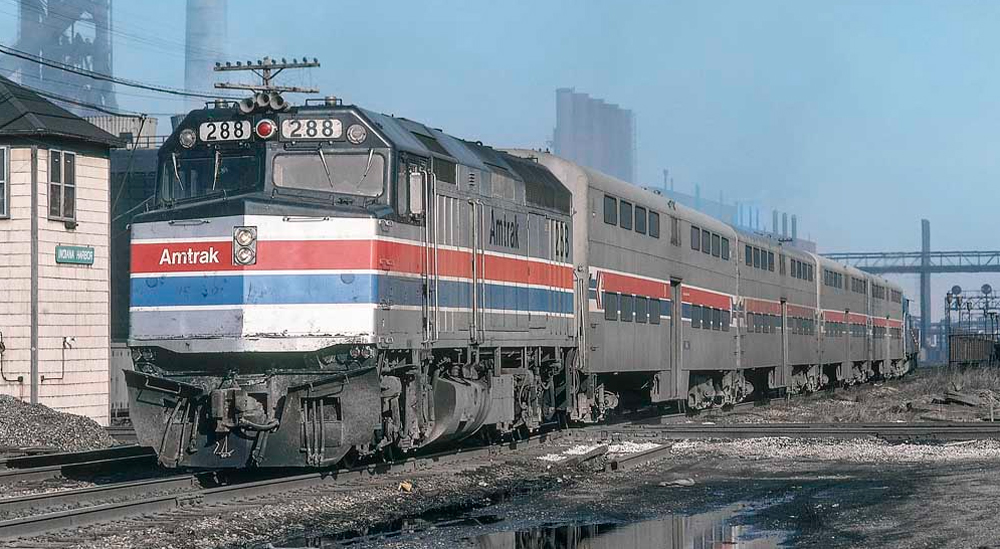
Indiana’s Valpo Dummy commuter train could not garner the public support and funding needed to survive into the modern era. In the 1890s, the Pennsylvania Railroad began operating commuter trains between Chicago and Valparaiso, Ind. Over the next century the service remained largely frozen in time, with operations changing relatively little as the trains passed […]
Read More…












